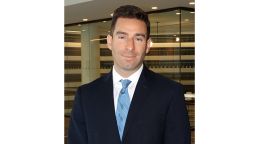Editor’s Note: Elie Honig, a former federal and state prosecutor, is a CNN legal analyst and a Rutgers University scholar. The views expressed in this commentary are his own. View more opinion articles on CNN.
Ever since special counsel Robert Mueller began his investigation of Russian interference in the 2016 election, public interest in the law, crime and justice has surged. Over the past few months, I’ve received countless questions – creative, unexpected, brilliant and challenging – from viewers and readers. People are keenly interested in learning about our legal system, perhaps like never before.

So as an experiment for the next few weeks, I’m going to be fielding questions sent in via Twitter (@eliehonig) and email (CNN.Opinion@turner.com). In 14 years as a prosecutor, I did my share of witness examinations. Some were explosive; others were quietly effective, and still others were duds. (No, I never got anyone to break and confess to a crime on the stand, Colonel Jessup-“You can’t handle the truth!”-style). Now, though, I’ll be on the witness stand, and you’ll be grilling me. No rules of evidence, no objections, no holding back. Ask whatever you want, and I’ll give you the truth. (You can handle it.)
And what a week for legal news: Rudy Giuliani took to CNN on Wednesday night to unveil his newest line of defense: “I never said there was no collusion between the campaign or between people in the campaign. … I have not. I said the President of the United States.” First, it simply isn’t true. Donald Trump himself has tweeted more than a dozen times denying any collusion between his campaign and Russia. Make no mistake: This is a strategic surrender by Giuliani.
Good defense lawyers constantly survey the landscape to determine what can be credibly denied and what cannot. And as the evidence mounts that many of Trump’s closest advisers colluded with Russia – most recently, the revelation that former campaign chair Paul Manafort shared sensitive internal polling data with Russian oligarchs, through a suspected Russian intelligence agent – Giuliani must now realize he cannot continue to issue blanket denials of campaign collusion. So he gives up some tactical ground, trying to build a last-stand fortress around the only person to whom he owes any allegiance – his client, the President of the United States.
The Senate Judiciary Committee questioned Trump’s nominee for attorney general, William Barr, who assured the American people of his independence – notwithstanding his prior attacks on Mueller’s obstruction theory as “fatally misconceived,” “asinine” and at risk of “taking on the look of an entirely political operation to overthrow the president.” While Barr assured the Senate that Mueller will be permitted to finish his investigation, he left open the possibility that he might hold back Mueller’s final report from the public, instead issuing his own high-level summary of its conclusions.
We also learned that the FBI opened a counterintelligence investigation of Trump to determine whether he was an agent (witting or unwitting) of Russia and that Trump allegedly took steps to conceal the substance of his talks with Russian President Vladimir Putin. The seemingly never-ending stalemate between Mueller and Giuliani over an interview of Trump somehow got even staler, potentially setting the stage for a subpoena battle. And Michael Cohen agreed to spill it publicly before the House.
Your questions
Here are some of the questions you sent in:
Jayne: He (Giuliani) admitted the campaign manager was colluding with the Russians, but Trump didn’t know???
Your use of three question marks nicely captures the spirit of incredulity one feels when applying basic common sense to Giuliani’s latest defense of Trump. Here’s what we already know for sure: At least 16 Trump associates had contact with Russians during the campaign or transition, virtually all of them lied about those contacts, and many of them (Manafort, Cohen, Michael Flynn, George Papadopoulos) have been convicted of federal crimes.
We also know the Russians tried to help Trump win the election by hacking and publishing emails from Hillary Clinton’s campaign and allied groups and by engineering fraudulent social media campaigns. So the million-dollar question now is whether Mueller can prove that Trump participated in or knew about the collusion. I think a juror, or any rational person assessing the facts, would have a hard time even based on what we know right now believing that Trump somehow was in the dark about what seemingly everybody around him was doing to help him win. And as we learn more from Mueller in upcoming weeks, the “blame everybody else but not me” strategy is going to become even more difficult to buy.
Cathie: Sir, sounds like Barr in his testimony is saying Mueller will submit his report to Barr, who then will write his own report. Quite frankly, I don’t give a damn what Barr has to say! Does Congress have any recourse as to seeing the entire, unedited Mueller report?
I’ve been in the room preparing people for confirmation hearings, and the two most important pieces of advice are (1) be boring and (2) commit to nothing. On (1), Barr aced it – he was dull, bland and created no seriously damaging headlines – in contrast, for example, to Brett Kavanaugh. (General rule of thumb: If they do a “Saturday Night Live” sketch about you, you haven’t been boring enough.) On (2), it’s all about flexibility, and Barr left himself plenty by saying he believed the Mueller report should be seen by the public, but “subject to applicable regulations and laws.”
As attorney general, Barr must do exactly that. But there’s almost unlimited flexibility in what that means. Here’s an example: What happens if Trump, through Giuliani, invokes executive privilege to argue that portions of the report should be redacted? Will Barr make his own redactions based on his view of executive privilege? Will he let Giuliani review it and make redactions? Will he fight in court if they disagree? In that sense, Barr has left the door open to almost any possibility – including the possibility that the American people will never see Mueller’s report, but rather only Barr’s own summary of its conclusions.
If Barr fails to turn over the report or major portions of it to Congress, the House Democrats will fight like mad. If that happens, we will see an executive privilege battle to rival the 1974 Richard Nixon case. I don’t like Trump’s chances in that legal fight. In an 8-0 ruling, the Supreme Court unanimously shot down Nixon’s executive privilege claim. Given that legal precedent, Trump would be fighting an uphill battle here.
Speaking of executive privilege. …
Clarence: Can you comment on the application/limits of executive privilege … in the context of the President’s nonpublic communications with a foreign head of state?
House Intelligence Committee Chairman Adam Schiff has stated his intent to subpoena the interpreter who was at Trump’s Helsinki meeting with Putin. (Schiff sure is enjoying his newfound subpoena power.) Trump’s best and perhaps only recourse is to assert executive privilege over his conversation with Putin. This one is tricky. On one hand, executive privilege is intended to shield private conversations between the President and his advisers – counsel, chief of staff, Cabinet members, etc. It would be a dramatic and unlikely extension of executive privilege to cover foreign heads of state – particularly heads of hostile foreign states, such as Putin.
That said, Trump could have a compelling policy argument: If interpreters can be subpoenaed to testify publicly about meetings with foreign leaders, those foreign leaders will be reluctant or unwilling to meet with the President. There are legitimate reasons why those conversations, such as the President’s internal discussions with his advisers, should remain confidential.
Ryan: Will the (President’s) interview with Jeanine Pirro affect him citing executive privilege in the future? He said that the notes (from his meeting with Putin in Helsinki) are open for grabs and he could care less if we saw them.
Good catch – you have a future as an investigator. Anytime a person holds a privilege – for example, attorney-client privilege, doctor-patient privilege or spousal privilege – it can be “waived” or essentially given up. So, a smart prosecutor (or member of Congress) could use Trump’s quote – “Anybody could have listened to that meeting, that meeting is up for grabs” – here to argue that he has waived any privilege claim. Trump’s only response then would be, “Yeah, just kidding, I said that on Fox News, but it’s not my position here in court.” Not exactly the strongest hand to play.
Victoria: Can the President of the United States be arrested while in office?
There are two important issues here. One, will Mueller bring criminal charges against Trump while he is President? Almost certainly not. Justice Department policy advises against indicting a sitting president, and Mueller is the ultimate by-the-book guy. It would take a change to the department’s policy and approval from the attorney general (Matthew Whitaker now, likely Barr upon confirmation) to indict the President. Highly doubtful, particularly given that Barr testified he saw no reason to change the policy.
But the second question is can a sitting president be indicted? That’s an unknown. The Justice Department policy is just that – a policy. It’s not part of the Constitution; it’s not a statute, and it doesn’t come from a prior court decision. And I know firsthand that Justice Department policies come and go.
In my time as a federal prosecutor, we saw the department create, amend and withdraw many internal policies. So, this policy could be changed or withdrawn with the stroke of a pen. The issue has never been tested in the courts, and respected scholars — including an adviser to then-independent counsel Ken Starr – have concluded that a sitting president can be indicted. Someday this question may go to the courts, and it will be fascinating to see what happens.
Tessa: Do hearsay rules change under a criminal conspiracy? How will that affect Cohen’s testimony in front of Congress?
First, hearsay rules do not apply to statements made in furtherance of a criminal conspiracy. And second, hearsay rules apply in court but not in congressional hearings – one of many reasons the Cohen testimony is going to make a circus look orderly by comparison.
Got more questions? Send them to CNN.Opinion@turner.com.
My 3 questions to watch for next week
1. Does Giuliani’s latest line of defense foreshadow new announcements from Mueller?
2. Will Mueller decide he’s had enough of Giuliani’s dancing on the interview issue and subpoena the President?
3. Will Schiff subpoena the interpreter who was present when Trump met with Putin?









